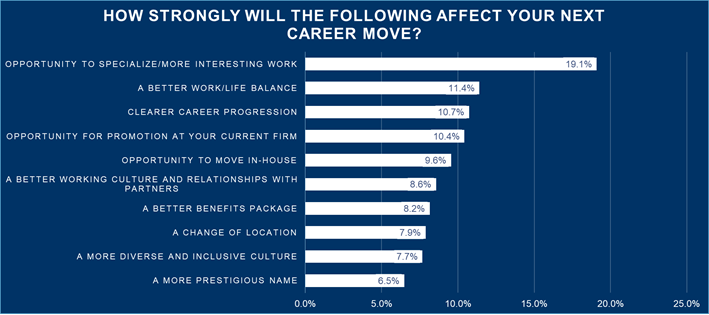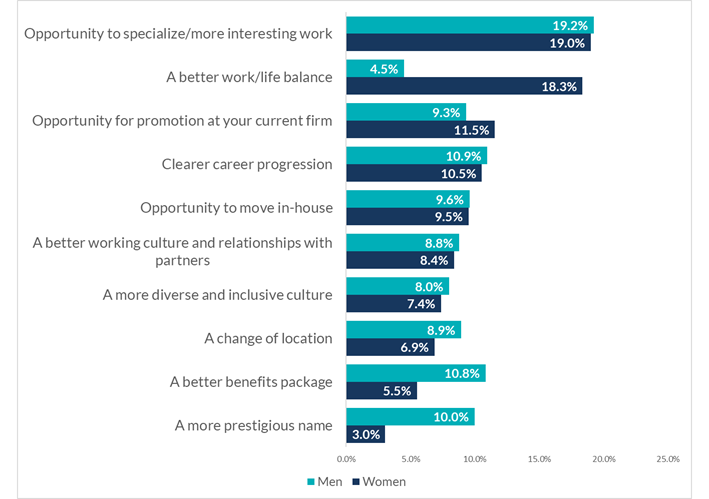
We analyze the push/pull factors for junior associates in their careers, and in doing so, we are given window on the truths of law firm life.
Antony Cooke, January 2020
LAWYERS like work. You can expect dazzling revelations such as these throughout Chambers Associate. We surveyed 2,000 junior associates in January 2020, and this is what they told us. It was not a shock, but the degree to which they value work compared to other elements of law firm life is remarkable. And, humblingly, in every survey we do of this nature ‘the quality of the work’ or ‘the intellectual challenge’ are always the top reasons students become and remain lawyers.

Common stereotypes and the legal press perpetuate the story that lawyers are a mercenary bunch, hunting the big salaries and billing staggering sums. But this survey tells a different story: that the superficial signifiers of success – money and prestige – are a low priority for junior associates. Admittedly our sample is mainly BigLaw; a hop from one firm to the next is unlikey to change their income dramatically, and in their financially comfortable position, money isn’t a deciding factor.
And if we understand the career-progression cliché of the high-achiever accurately – ace law school; enter giant firm; work on small parts of huge deals; get bored and overworked – we know they’ll be looking for something more meaningful and less abstract after a few years. They did the prestige thing at stage one and learnt that every career path involves compromise early on. But we won’t use this survey to dismiss prestige: it’s a strong motivator in a lawyer’s first job. Prestige itself is a rather woolly term, but if you look at the Chambers rankings, you’ll see how it originates from something more concrete. Prestige is the badge of honor that gets associates their next job, and prestigious firms are exceptional training grounds for junior lawyers – dismiss the biggest of BigLaw at your peril.

The prestige-money story became interesting when we split these push-pull factors by gender. Note how when women are contemplating their next move, prestige and money hold little sway. The big differentiator in gender becomes work/life balance. In a profession as uniquely pressured as law, answers and action are still not there on making it compatible with a society that continues to place the large burden of parenting on women. The current solution for parents, as we can see, is to find a firm or in-house role that will be more accommodating.
That ‘a more diverse and inclusive culture’ is not a differentiator between the sexes is at first a surprise. But perhaps our audience has decided that finding a new employer with improved work/life balance is more immediately effective than waiting for D&I programs to deliver equality at the top end. That’s not to say D&I initiatives don’t bear fruit – turn to our review of any law firm and you’ll see what value they bring to associate life, career prospects and firm culture. Pressure and implicit bias are at the center of law firms’ retention issues: they lose over half the women they invested in as attorneys progress to partnership.
These results tell us there is no simple answer to retaining or attracting talent. Money’s bargaining power is more limited than it was once, and becomes less relevant still when the attorney is faced with the prospect of raising a child. As we found in some 2019 research, millennials demand more from life than older generations. Lawyers will continue to leave if the firm doesn’t offer the intellectual stimulus they joined the law for, or adequately address the pressures they put them under.
The best firms for benefits and lifestyle 2019